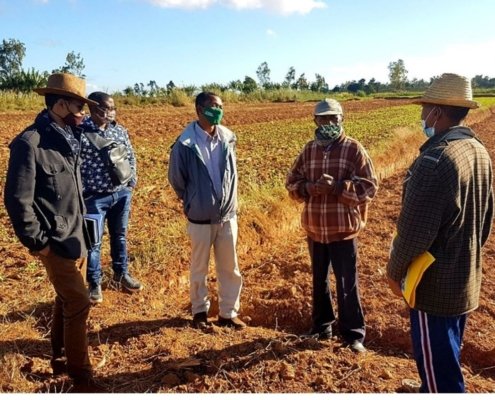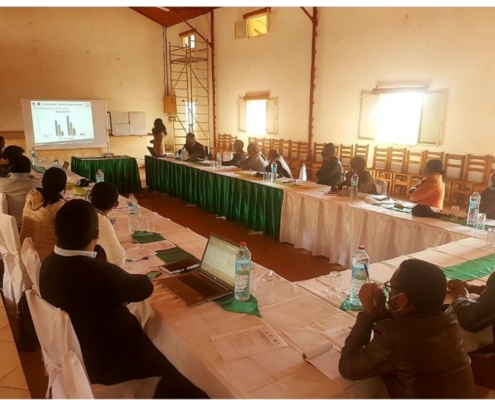As part of the Farmer Services Strategy developed by the Ministry of Agriculture, Livestock and Fisheries, Fert, in partnership with the national NGO Amadese, supported the implementation of the Regional Agricultural Development Fund (FDAR) in the Alaotra Mangoro region in Madagascar. After four years of support, this mechanism will be transferred to the national public institution FDA in August 2021.
In order to anticipate this transfer, a review workshop was organized with local FDAR actors, the FDA and the Agence Française de Développement. During two days, the participants went to the field to meet project leaders and attended debates in order to draw lessons from the implementation of this mechanism.
What is FDAR ?
The Regional Agricultural Development Funds aim to promote the development of agricultural services and value chains by subsidizing projects of farmers or farmers’ organizations. In 2014, the system was institutionalized with the creation of the Agricultural Development Fund (FDA) at the national level, whose objective is to extend the system to other regions of Madagascar.
Tangible results
Over a period of four years, 390 project leaders, i.e. 13,355 producers in the Alaotra Mangoro region, were able to benefit from financing for their collective or individual projects in a wide variety of areas: agricultural diversification towards local chicken, acquisition of dairy cows or breeding stock (bulls, boars, etc.), hydro-agricultural infrastructure, development of agroecological practices in the off-season, acquisition of productive inputs, etc. These subsidies have reached a total amount of 600,000€. The project leaders contribute from 10% to 30% of the project amount.
The example of Julio, a young farmer, illustrates the success of the scheme.
Julio completed his training at the Manganoro agricultural college (belonging to the Fekama federation, a member of the Fifata group) in 2019 with the presentation of his installation project before a jury composed of the FDAR. His project was approved by all the members and the FDAR offered him an endowment to carry it out.
Thanks to his endowment, Julio bought a quality cow to start his project without difficulty. Today, he is well established and gives many advices to his peers on rice production, livestock or market gardening in agro-ecology.
“If you count all the benefits I get from raising the dairy cow I acquired with the FDAR grant (milk, manure, liquid compost, calf…) I earn nearly 600,000 Ariary per month. This is much more than the salary of a civil servant in my village. In four months, I was able to earn the equivalent of the purchase price of my cow.”
He effectively transformed the FDAR grant thanks to his training at the agricultural college and the support of the agricultural advisor of the regional OP Vifam, a member of Fifata. His advisor helped him with the administrative procedures (preparation of the funding application, opening a bank account, etc.). Without this support, accessing and using the grant can be complicated.
But a complex system that requires good support for producers
One of the major lessons learned from the implementation of the FDAR is the need to support producers due to the complexity of the procedures. This support must enable project leaders to follow the procedures correctly but also to think through their project beforehand so that it meets their needs and so that all the skills and materials are mobilized.
It is in this sense that Fert and Amadese have shared their work with the ADF and the funders of this mechanism:
- A set of proposals aimed at making the FDA more accessible to farmers: adapting procedures, strengthening communication and training for project leaders, etc.
- A study on the conditions for better support and advice to producers and the financing of this function within the framework of the FDA.
The purpose of this work is to provide input for the discussions of producer organizations, the ADF and financial partners in improving the ADF system and, more broadly, the Farmers’ Services Strategy, which is being revised in 2021.




